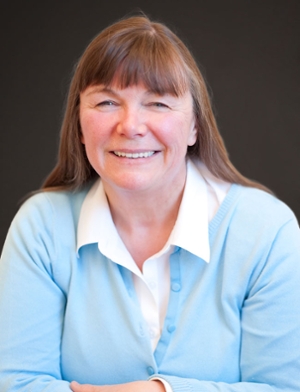
Research Spotlight: Dr. Angela Bowen (PhD)
SCPOR had a chance to sit down with Dr. Bowen (PhD) to discuss her innovative, research project, ‘Bringing Birth Back: Improving Access to Culturally Safe Birth in Saskatchewan.” She also shares some insight about being a POR researcher.
Provided by the Saskatchewan Centre for Patient-Oriented Research (SCPOR)
SCPOR: First of all, congratulations on your team being awarded an Excellence Award by SHRF for having the top-ranked SPROUT grant in 2018! How significant was that achievement for your team?
A: Thank you! The recognition was overwhelmingly positive for us, it affirmed that our work with mothers and their babies is as important to others as it is to us!
SCPOR: How was this project launched?
A: We were doing a project interviewing women about their hospital experience, funded by the Jim Pattison Children’s Hospital Foundation. We soon realized that many women are unhappy with their baby’s birth. We believed that we needed to look beyond just improving in-hospital care. We were fortunate enough to get a Patient Engagement Application Development (PEADA) award from SCPOR,which was a bit of micro-funding that allowed us to visit some Indigenous communities in the province and met with groups of mothers and ask them “What things should we explore to better understand what women need to improve their birth experience?” Women were really engaged, interested, and excited to be included in this research. We quickly realized that we needed to look at birth closer to where women live. Trying to change our care and education system to ensure that the Calls to Action of the Truth and Reconciliation Commission were actualized for our mothers and their families.
SCPOR: How challenging was it to recruit mothers to be part of this project?
A: We have had some wonderful mothers involved in this project from the onset. But I have discovered from other research projects that it’s always a challenge to recruit pregnant women and new mothers. As keen as they are, they have busy lives and can’t always remain part of the group once they return to work or have their baby.
SCPOR: In all your years, visiting communities, meeting with Indigenous mothers, what has struck you the most about the needs they have when it comes to birthing?
A: A birthing space that is safe and peaceful and accepting of family (lot’s of family!) and close to their home community or where they want to have their baby.
SCPOR: What does culturally-safe birth mean?
A: There are various definitions out there, but for this project, it means that a woman feels that she and her culture are respected through the care that she receives during childbearing. That she is able to practice her cultural teachings and ceremonies as she chooses. It is imperative that the mother doesn’t feel racism towards her or her baby during this special time. Ultimately, that it is the best birth experience possible, a good birth, as we wish for every woman.
SCPOR: How does the active involvement by the mother-advisors on your team had an impact on the research itself?
A: The mothers – and for me most importantly – their babies are a fabulous addition to the team. It keeps us real and relevant! They are so open and energetic and add so much to the work we are doing!
SCPOR: Researchers such as yourself seek out to actively engage patients in meaningful ways on a research project. Some researchers shy away from this approach because they are concerned it may take too much time and energy. The perception is that it is easier to do research on patients rather than with patients. What would you say to them?
A: I would say that it is the only way to do research that is meaningful, no matter what the topic. Perhaps it takes longer when you are first starting out, building relationships, but I have no doubt that the outcomes are better. Now, I can’t imagine doing research any other way!
SCPOR: What do you think communities and participants stand to gain when they engage in patient-oriented research?
A: We are hiring local research staff now in our projects. I hope it peaks their interest and confidence in the different aspects of research so that they start their own projects. Local champions have much more interest in staying committed to the research and using the findings in their lives and that of their friends and family, we are already seeing this and it is exciting and rewarding.
SCPOR: As a nurse, a midwife and researcher, you’ve got a unique perspective when it comes to how we ought to actually improve health outcomes and create a healthcare system that is more equitable. How has that perspective shaped your work?
A: I do think for my work that my background has made me a more effective researcher in this area. I know the physical issues that most women would encounter, how the system works, and what is feasible in change.
SCPOR: Are there any additional points you would like to add?
A: I am very thankful to SCPOR and SHRF for supporting this research. The teaching release that the Patient-Oriented Research Leadership Award provides has been tremendous for me personally. It has provided me with the time to fully immerse in cultural learning while doing this most rewarding research. I cannot thank you enough!

